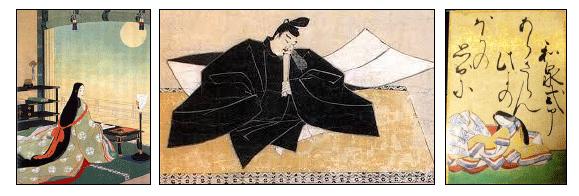Members of the family
Content: Members of the family
Aim: Introducing the members of my family.
New Vocabulary:
Japanese | Romaji | English |
かぞく | kazoku | family |
なんにん | Nan nin | How many people |
おとうさん | Otoosan | father |
おかあさん | Okaasan | mother |
おにいさん | Oniisan | Older brother |
おとうと | Otooto | Younger brother |
おねえさん | Oneesan | Older sister |
いもうと | Imooto | Younger sister |
*おばあさん おばあちゃん | Obaasan Obaachan | grandmother |
*おじいさん おじいちゃん | Ojiisan Ojiichan | grandfather |
おおきな | Ookina | large |
いっしょ | issho | together |
だから | dakara | Therefore, so |
*“Chan” is a term of endearment, and often put it after the name, and used among family members and close friends. Here, when you refer elderly other than your own grandparents, you might call them “おじいさん” or “おばあさん”. But for your own grandmother and grandfather, many would use “ちゃん” instead of “さん”.
Sample Sentences:
やまだ:エンリケさんは、なんにんかぞくですか?(Enrique san, how many people do you have in your family?)
Enrique san wa nan nin kazoku desu ka?
エンリケ:8にんかぞくです。(8 people in the family.)
Hachi nin kazoku desu.
やまだ:おおきなかぞくですね。(That’s a large family, isn’t it?)
Ookina kazoku desu ne.
エンリケ:はい。おとうさんと、おかあさんと、ぼくと、おにいさんと、いもうとがいます。おじいさんと、おばあさんもいっしょです。(Yes. My father, my mother, myself, an older brother, and a younger sister. My grandfather and grandmother are also with us.)
hai. Otoosan to okaasan to boku to oniisan to imooto ga imasu. Ojiisan to obaasan mo issho desu.
やまだ:アナさんは?(and you, Ana san?)
Ana san wa?
アナ:わたしのかぞくは、おとうさんと、おかあさんと、わたしと、おとうとの4にんです。(My family is father, mother, myself and a younger brother, 4 of us.)
Watashi no kazoku wa otoosan to okaasan to watashi to otooto no yonin desu.
やまだ:かぞくと、なにごをはなしますか?(What language do you speak with you family?)
Kazoku to nani go o hanashi masu ka?
アナ:わたしのおかあさんはフランス人です。だからフランスごをはなします。おとうさんとはスペインごをはなします。(My mother is French. So we speak French. With my father, I speak Spanish.)
Watashino okaasan wa furansu jin desu. Dakara furansu go o hamashi masu. Otoosan to wa supein go o hanashi masu.
Lesson Point:
You learned from the previous lesson that by combining the name of a country and “jin – じんor人”, you can describe one’s nationality. However, the pronunciation of 人(person) changes to “にん-nin” when you are counting the number of people.
Let’s count people (be careful of the irregular!)
1人 | ひとり | Hirori |
2人 | ふたり | Futari |
3人 | さんにん | San nin |
4人 | よにん | Yo nin |
5人 | ごにん | Go nin |
6人 | ろくにん | Roku nin |
7人 | しちにん | Shichi nin |
8人 | はちにん | Hachi nin |
9人 | きゅうにん、くにん | Kyuu nin, ku nin |
10人 | じゅうにん | Juu nin |
11人 | じゅういちにん | Juu ichi nin |
12人 | じゅうににん | Juu ni nin |
13人 | じゅうさんにん | Juu san nin |
14人 | じゅうよにん | Juu yo nin |
20人 | にじゅうにん | Ni juu nin |
*Note that 1 person to 3 people are counted differently. After that, the numbers are read as regular numbers, and simply add the counter word “nin” describe the number of people.
| S-23-1 |
Mini-quiz
· In Japanese, say how many people you have in your family, and tell us who they are.
わたしのかぞくは___と___と___です。__人かぞくです。
